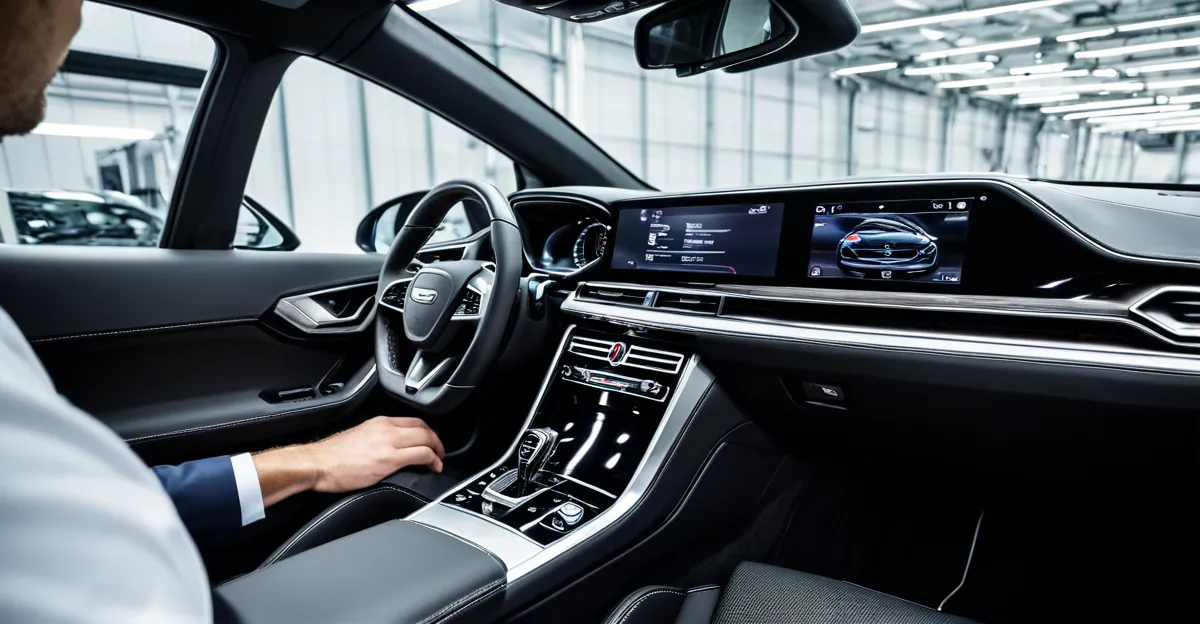The significance of innovation in UK automotive competitiveness
Innovation in UK car manufacturing serves as a fundamental pillar for sustaining and enhancing competitiveness in the automotive industry. It is not merely about incremental improvements but involves pioneering breakthroughs that redefine vehicle performance, safety, and efficiency. Car manufacturers in the UK understand that innovation’s importance extends beyond product development to encompass manufacturing processes, supply chain integration, and customer experience.
At its core, innovation supports competitive advantage by enabling UK automotive companies to differentiate their offerings in a crowded, globalized market. Embracing cutting-edge technologies, such as electrification and automation, creates new value propositions that appeal to evolving consumer demands and regulatory standards. This proactive approach ensures that UK brands remain relevant and attractive amid fierce global competition.
Also read : Future Trends in the UK Automotive Industry
The interrelationship between technology, research and development (R&D), and market leadership is crucial in this context. Investing heavily in R&D allows UK car manufacturers to rapidly translate innovative concepts into commercial realities. This dynamic fosters continuous improvement and positions the UK as a hub for advanced automotive solutions. Consequently, the market benefits from a cycle where innovation feeds competitiveness, and competitiveness justifies further innovation, securing a robust position within the global industry landscape.
Technological advancements driving the UK automotive sector
Technological progress plays a pivotal role in shaping technology in UK automotive industries, directly impacting innovation in UK car manufacturing. Among the most significant areas are electrification, automation, and connectivity. Electrification involves shifting from traditional internal combustion engines to electric powertrains, reducing emissions and meeting stringent environmental regulations. Automation enhances manufacturing efficiency and safety by incorporating robotics and intelligent systems in production lines. Connectivity, including vehicle-to-everything (V2X) communication, improves the driving experience and safety through real-time data exchange.
Also to read : How are UK automakers innovating in autonomous vehicle technology?
Automotive R&D investments are substantial in the UK, underpinning these technological strides. UK car manufacturers’ technology strategies often emphasize collaboration between industry and academia to accelerate innovation. For instance, dedicated research centers focus on battery technology and autonomous driving systems, crucial for maintaining competitiveness in the UK market. These collaborative efforts translate R&D outcomes into practical applications, driving commercial products that exemplify cutting-edge technology.
The integration of advanced manufacturing processes further demonstrates innovation’s role. Techniques such as additive manufacturing (3D printing) and digital twin simulations optimize design and production workflows, reducing costs and lead times. By adopting these advancements, the UK automotive sector enhances quality and responsiveness, supporting competitive advantage domestically and internationally. Ultimately, the convergence of technology in UK automotive with robust R&D and modern manufacturing practices solidifies the sector’s innovative edge.
Impacts of innovation on market share and profitability
Innovation plays a critical role in shaping the market share UK car industry commands both domestically and internationally. By introducing novel technologies and advanced features, UK car manufacturers can differentiate their products, attracting a broader customer base and expanding their reach. This expanded market presence directly leads to an increase in automotive industry performance, measured through sales volume and brand recognition globally. Innovators in the UK automotive sector often enjoy enhanced consumer loyalty, boosting repeat purchases and long-term market stability.
The role of exports is pivotal in this context. High-value innovations enable UK manufacturers to compete effectively in demanding international markets where competitiveness in automotive industry hinges on cutting-edge technology and quality. Export growth, fueled by innovation, is a clear indicator of market confidence and demand, which positively impacts revenue streams. It demonstrates the global appeal of UK-developed automotive solutions and supports the industry’s economic resilience.
Regarding profitability and innovation, while the financial rewards of pioneering new technologies can be substantial, companies must manage inherent risks carefully. Investment in R&D and cutting-edge manufacturing technologies demands significant capital and may encounter unpredictable return on investment timelines. However, strategically aligned innovation efforts that match market needs tend to enhance profitability by reducing production costs, improving product value, and opening new revenue channels. Therefore, innovation is not only a driver of market share expansion but also a key factor in sustaining profitable growth within the UK’s competitive automotive landscape.
Comparative analysis: UK car makers versus global competitors
Examining the global automotive competition, UK car makers demonstrate strengths and weaknesses when compared to their international counterparts from Germany, Japan, and the USA. The comparison of innovation reveals that UK manufacturers excel particularly in niche segments such as luxury and performance vehicles, where bespoke design and cutting-edge technology often lead. British firms have established a reputation for craftsmanship combined with technological sophistication, notably in electrification and lightweight materials.
However, in broader mass-market electric vehicle (EV) production and autonomous driving systems, UK car makers sometimes lag behind more extensive investments and rapid deployment seen in Germany and Japan. For example, German manufacturers benefit from large-scale infrastructure and strong integration of technology in UK automotive sectors, which outpaces the relatively smaller-scale efforts of UK firms. Similarly, Japanese companies have pioneered hybrid technologies that persist globally, influencing market expectations and forcing innovation shifts.
Learning from these best practices encourages UK manufacturers to increase automotive R&D efforts and leverage deeper collaboration with technology providers and academia. Applying strategic lessons from global leaders enables improvements in manufacturing scale, cost efficiency, and innovation diffusion. Despite challenges, the UK remains adaptive, often using flexibility and specialized skills as competitive advantages within the intensely competitive international landscape. This comparative lens highlights not only areas for improvement but also opportunities where UK innovation can assert market leadership on a global stage.
Future trends and challenges in UK automotive innovation
As the future of UK car industry unfolds, several innovation trends are shaping its trajectory. Sustainability stands at the forefront, with UK car manufacturers prioritizing eco-friendly materials and zero-emission vehicles to meet increasingly stringent environmental standards. This shift reflects broader global efforts to reduce carbon footprints, requiring innovations in battery technology, energy management, and lifecycle vehicle design.
Artificial intelligence (AI) and digitalisation are also transforming the UK automotive innovation landscape. AI-driven systems enhance not only vehicle autonomy but also predictive maintenance, customer interaction, and manufacturing efficiency. Digital platforms streamline design and production processes, enabling UK manufacturers to respond swiftly to market demands. These technologies reinforce competitiveness by fostering smarter, more adaptive operations.
However, these promising trends face significant challenges in automotive innovation. Regulatory uncertainties around emerging technologies can delay product development and market entry. Economic factors, including fluctuating investment levels and supply chain disruptions, further complicate innovation efforts. UK firms must navigate these hurdles strategically to sustain growth.
To maintain long-term competitiveness, UK car manufacturers are advised to focus on collaborative R&D initiatives, actively engage with policymakers to shape supportive regulations, and invest consistently in cutting-edge technologies. Embracing these priorities will help the sector harness future innovations effectively while mitigating associated risks.









